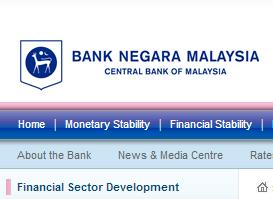THE MALAYSIAN BANKING INDUSTRY

The Malaysian banking sector used to be known to be boring, uneventful, routine and numbers-oriented. However, in recent times, the industry has experienced tremendous “humanisation” in that it has evolved from a numbers-oriented industry to a people-oriented sector that aims to provide Malaysians and foreigners living in Malaysia an effective and efficient financial management system, and solutions that meet the rising demand of the economy in a globalised environment.
This has enabled the industry to create people-oriented jobs for bankers such as relationship managers, customer service personnel, human resource roles and many other roles that involve dealing with internal and external customers. In Malaysia, there are currently 24 licensed commercial banks, of which eight are locally owned while the rest are foreign-owned banks. Despite the challenging global, regional and local economic conditions, banks in Malaysia are showing healthy growth.
Bank Negara Malaysia’s Economic Intelligence Unit (EIU) rated the country’s banking sector’s outlook as “stable” as of April 2011, citing the banking industry as a sector that is “well placed to absorb losses arising from economic shocks or problems affecting affecting the international financial system”. In recent years, the Malaysian banking industry has seen mergers and management changes. According to HwangDBS, mergers that are complementary will create value in the industry, further liberalisation could trigger more consolidation of banks, stockbrokers and insurers.
This in turn works to create more robust job prospects in the Malaysian economy with a high demand for highly skilled, innovative thinkers and strategic minded people to navigate the challenging terrain that banks encounter. In a quest to stay above competition, banks in Malaysia have embarked on extensive people development programmes that promise added value for employees and potential employees in the industry.
Banks are no longer stereotypical organisations that practice only number crunching roles but offer exciting roles in organisational transformation, human capital development, strategic planning and business development, trading and risk management, among others. The management of human resources (HR) and HR practices as well as policies have tremendously evolved to create an engaging environment for bankers.
According to The Borneo Post, an additional 56,000 experts are needed in the banking and financial services sector to accommodate higher demand by 2020. Risk management, wealth management, Islamic finance and investment advisory services are among critical areas in the sector that need to be filled. The Financial Sector Blueprint (2011 – 2020) states that key to supporting the growth and advancement of the financial industry is a steady stream of competent and dynamic talents. Young graduates have better opportunity for employment and holding key positions in the industry. The banking industry in Malaysia is indeed an excellent job pool to be considered by potential candidates.




